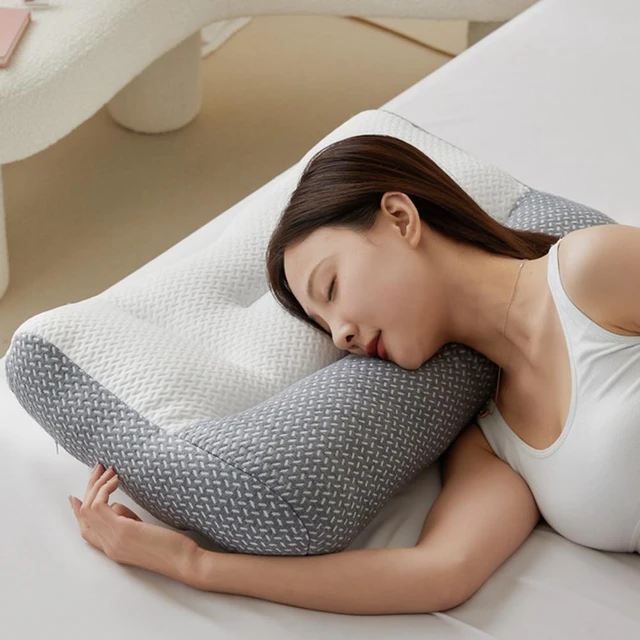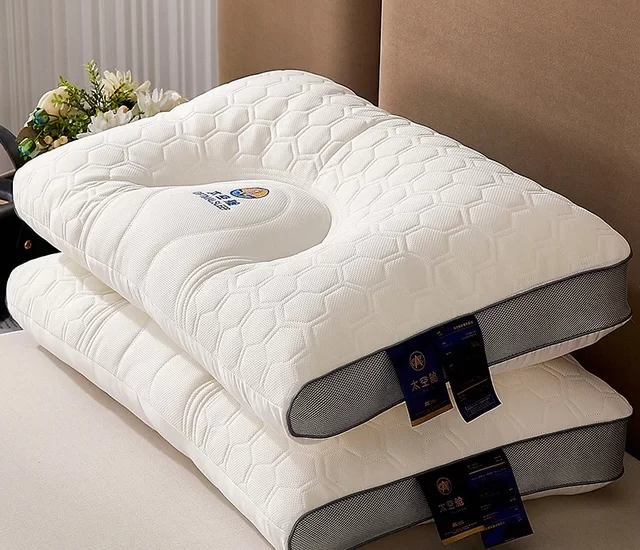 Introduction:
Introduction:
Sleep plays a crucial role in our overall well-being, and finding the right sleeping position and comfort is essential for a restful night’s sleep. One debate that often arises is whether it is better to sleep with or without a pillow. In this comprehensive guide, we will explore the benefits of both options and help you understand which may be more suitable for you. By considering factors such as spinal alignment, individual preferences, and specific sleep conditions, you can make an informed decision to optimize your sleep quality.
 Introduction to Sleep Positions
Introduction to Sleep Positions
Sleeping positions differ from person to person, and finding the ideal position for maximum comfort is key.
A. Back Sleeping: Sleeping on the back is known for providing good spinal alignment.
B. Side Sleeping: Side sleeping is commonly preferred and can help with digestion and snoring reduction.
C. Stomach Sleeping: Sleeping on the stomach can be problematic due to potential strain on the neck and spine.
The Role of a Pillow
A pillow serves several purposes, including providing neck support and maintaining proper spinal alignment during sleep.
A. Neck Support: A pillow keeps the neck aligned with the spine, reducing potential strain or discomfort.
B. Spinal Alignment: A properly placed pillow helps maintain the natural curvature of the spine, supporting a neutral and healthy alignment.
C. Comfort: A pillow can enhance comfort by providing a cushioned surface for the head and neck.
Some common types of pillows:
There are various types of pillows available to cater to different sleep preferences and needs. Here are some common types of pillows:
Down Feather Pillows:
These pillows are filled with the soft and fluffy feathers from ducks or geese. They offer a luxurious feel and provide good support while being lightweight and breathable.
Memory Foam Pillows:
Memory foam pillows conform to the shape of the head and neck, providing personalized support and pressure relief. They are known for their ability to contour to the body, offering excellent cushioning and reducing the risk of neck and shoulder pain.
Latex Pillows:
Latex pillows are made from natural or synthetic latex foam. They offer a responsive and supportive feel, promoting proper spinal alignment. Latex pillows are known for their durability and hypoallergenic properties.
Polyester Fill Pillows:
Polyester fill pillows are affordable and widely available. They offer a soft and plush feel while providing moderate support. These pillows are easy to care for and suitable for people with allergies.
Buckwheat Pillows:
Buckwheat pillows are filled with natural buckwheat hulls. They offer adjustable support and conform to the shape of the head and neck. Buckwheat pillows are breathable and can help with temperature regulation during sleep.
Microbead Pillows:
Microbead pillows consist of tiny polystyrene beads that provide a unique firmness and flexibility. They offer good support and moldability to fit individual preferences. Microbead pillows are often used for travel or as neck pillows.
Body Pillows:
Body pillows are elongated pillows designed to provide support and comfort for the entire body. They are popular among pregnant women, side sleepers, and individuals seeking extra support for their back, hips, or knees.
Cooling Pillows:
Cooling pillows feature materials or technologies that dissipate heat and regulate body temperature. They are designed to provide a cool and comfortable sleep environment, particularly for those who experience night sweats or hot flashes.
These are just a few examples of the types of pillows available. The right pillow for you will depend on your preferred sleeping position, any specific sleep-related issues or conditions you may have, and personal comfort preferences. It’s essential to choose a pillow that provides proper support and helps maintain proper spinal alignment for a restful sleep.
 Benefits of Sleeping with a Pillow
Benefits of Sleeping with a Pillow
Sleeping with a pillow offers several benefits for comfort and spinal alignment.
A. Neck Support: A pillow provides essential support to the neck, reducing the risk of stiffness or pain.
B. Spinal Alignment: Properly choosing and using a suitable pillow can help maintain proper alignment of the spine during sleep.
C. Noise Reduction: A pillow can act as a sound barrier, reducing any noise disruptions that may disturb sleep.
Benefits of Sleeping Without a Pillow
Sleeping without a pillow also has its advantages, although it may not be suitable for everyone.
A. Natural Alignment: Sleeping without a pillow allows the neck and spine to align naturally, potentially improving posture.
B. Reduced Pressure Points: Without a pillow, pressure points on the neck and spine may be alleviated, reducing discomfort.
C. Acid Reflux Relief: For individuals with acid reflux or heartburn, sleeping without a pillow can help minimize symptoms.
 Considering Individual Preferences and Sleep Conditions
Considering Individual Preferences and Sleep Conditions
Individual preferences and specific sleep conditions should be taken into account when deciding to use or forgo a pillow.
A. Comfort and Personal Preference: Every person has unique comfort preferences during sleep, and choosing to sleep with or without a pillow should be based on individual preference.
B. Sleep Conditions and Special Needs: Certain sleep conditions, such as sleep apnea or snoring, may require specific pillow types or sleeping positions. Consulting a healthcare professional can help determine the most suitable option.
Experimentation and Adaptation
Finding the ideal sleep position and comfort often requires experimentation and adaptation.
A. Personal Trial and Error: Try sleeping with and without a pillow to assess what feels most comfortable and provides the best quality sleep.
B. Gradual Adjustment: If transitioning from using a pillow to sleeping without one, consider gradually reducing pillow height over time for a more gradual adjustment.
 Conclusion
Conclusion
The decision to sleep with or without a pillow ultimately depends on personal preference, comfort needs, and specific sleep conditions. While a pillow can provide neck support and spinal alignment benefits, some individuals may find sleeping without a pillow more comfortable or better suited to their sleep conditions. By considering factors such as spinal alignment, individual preferences, and any specific sleep conditions, you can make an informed decision to ensure optimal sleep quality. Experimentation and adaptation play a key role in finding the best sleep position and comfort level for a restful night’s sleep.


